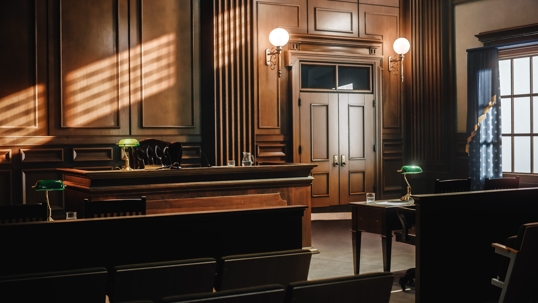A deposition consists of a lawyer asking a witness questions, outside of court, in the presence of a court reporter. The court reporter types out every word said at the deposition. The court reporter creates a written document known as a “transcript”, which will state every word said by the witness and every word said by the deponent. The transcript can then be “lodged” with the court for hearing or trial and used to prepare for trial and to “impeach” the witness if they testify differently at a later date.
Benefits To Deposition.
Depositions are an extremely important trial preparation tool for the following reasons:
- Trial Preparation.
- Depositions are extremely useful as a trial preparation tool. At a deposition, the attorney will ask all important questions to the witness that the attorney is considering asking at trial. When the witness responds in a certain way, the attorney can then plan the trial knowing how the witness will respond to a certain question. If a witness responds in a way that is negative towards your case, the attorney then knows not to ask that question to the witness at trial, and knows how to plan for possible cross examination should the opposing attorney ask the question at trial. Knowing what people will say when under oath will help the attorney plan the case for the best possible result.
- Impeachment At Trial.
- The legal definition of impeachment is proof that a witness who has testified in a cause is unworthy of credit (untrustworthy). Essentially, that a witness has not told the truth. When a lawyer successfully impeaches a witness by showing they have made inconsistent statements, the Court can disregard the witness's testimony and possibly even rule in your favor if impeachment is successful.
- Impeachment may be done with a deposition transcript. If the same question is asked at the deposition as at trial, and the witness gives two different answers, the attorney can read the deposition transcript into the record to impeach the witness, showing the witness is untruthful.
- Playing the Video Deposition At Trial.
- If you are deposing a party, you can play parts of the video deposition at trial without asking any questions at trial. This is important as the court can see the demeanor of the witness and how the witness answers certain questions.
- “Boxing In” Testimony.
- The term “Boxing In” testimony means that how a witness testifies at a deposition boxes them in to testifying to the same thing at trial. As stated above, if they testify differently, you can impeach their credibility. This gives the lawyer more tools to impeach credibility and prepare for trial by boxing in the witnesses testimony.
- Document Production.
- You can request that a witness bring documents to their deposition. This is incredibly important, given that you can ask for documents that the opposition will use at trial, you request documents that may be used against the opposition at trial.
Negatives to Deposition.
The only real negative to a deposition is the cost. For a deposition you will pay for the following items:
- Attorney’s preparation for the deposition.
- Attorney being present at the deposition.
- The court reporter fees which can vary from $2,000-$4,000.
- The transcript, which can vary in cost.
- If applicable, the videographer fees, which can vary in costs.
Please contact Morales Law P.C. if you have any questions about conducting a deposition in your case.

